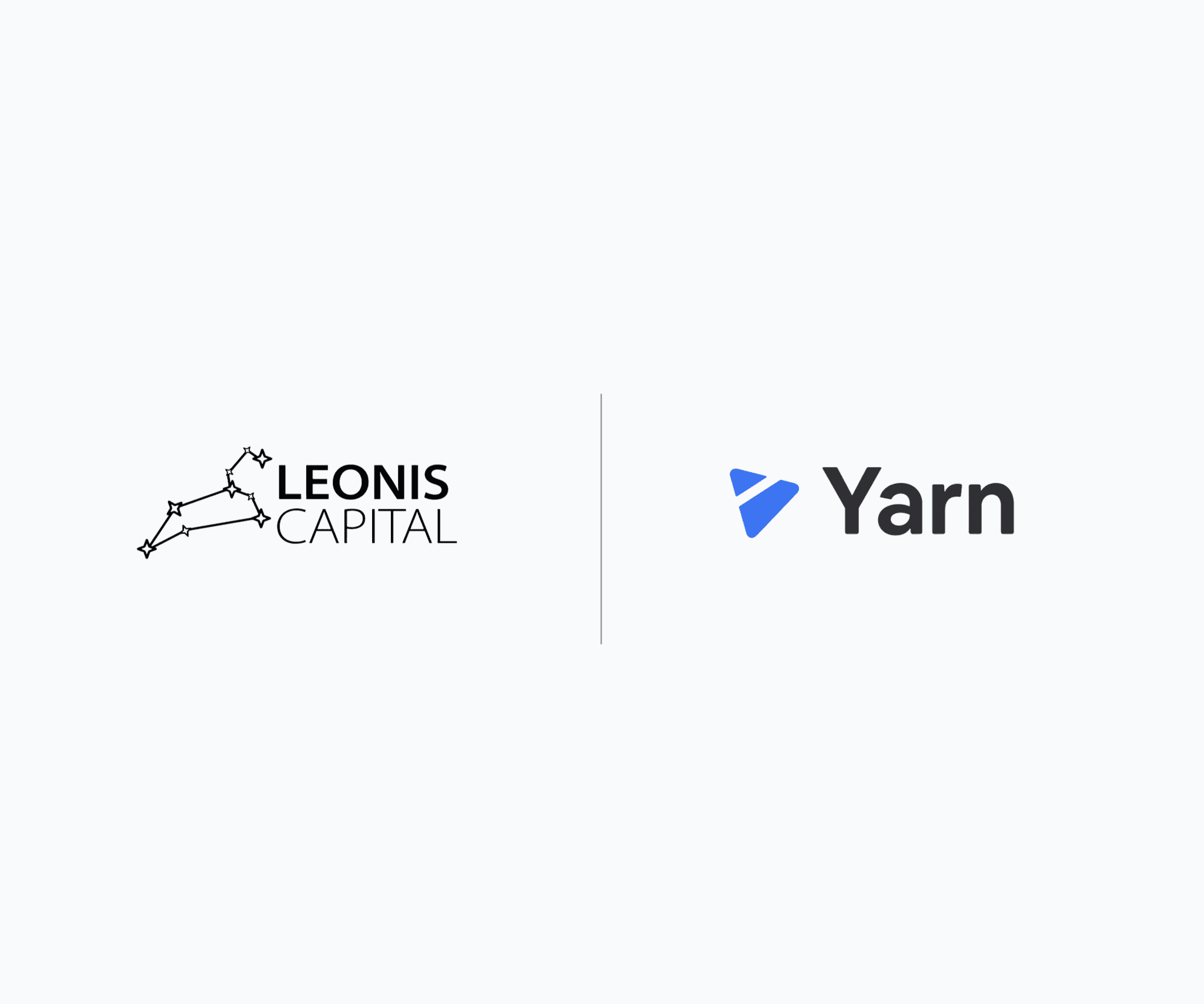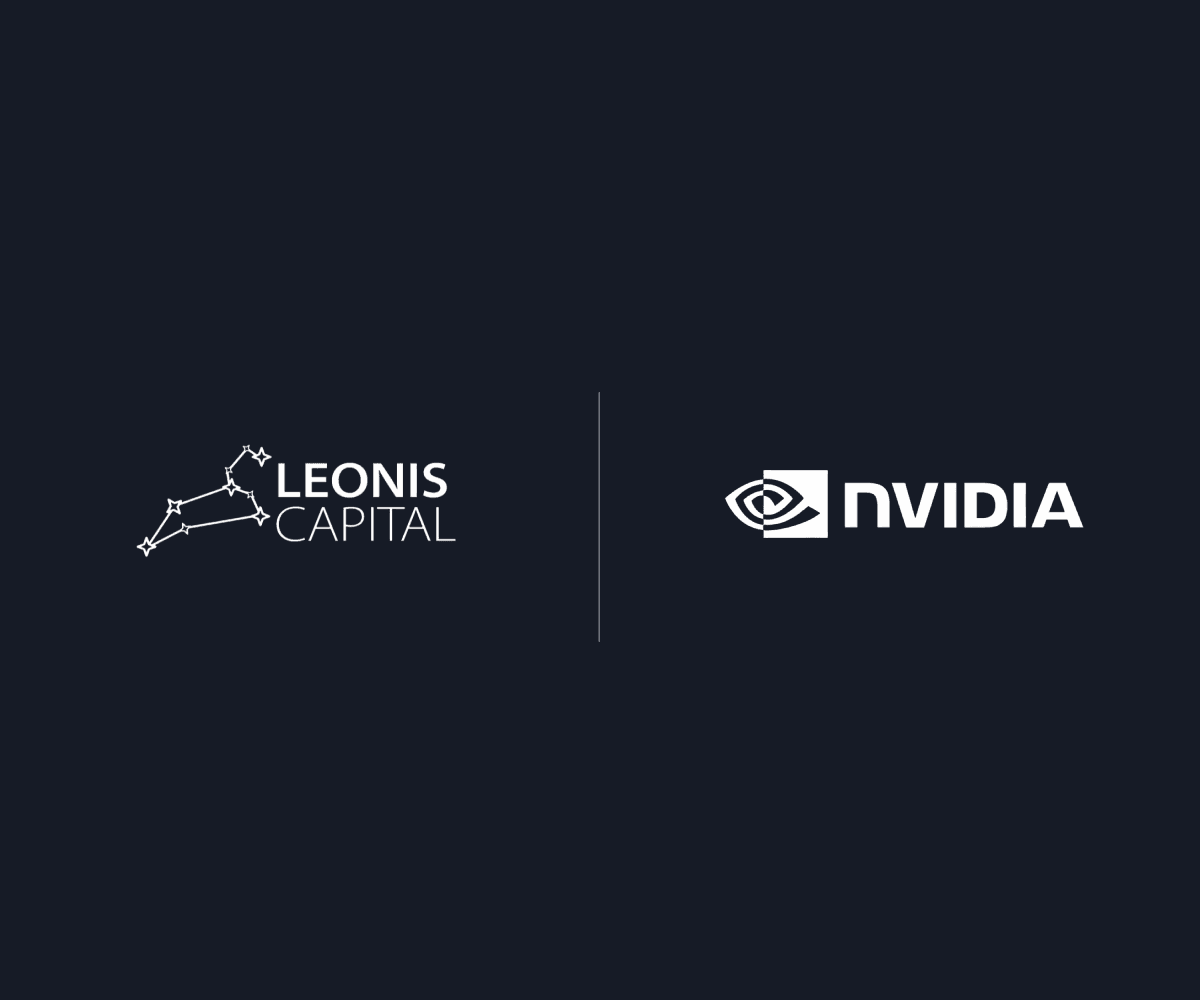Posts
Our Investment in Yarn: Using AI to Transform Video Creation Workflows
Jenny Xiao and Jay Zhao
Apr 29, 2024


[Read the full investment memo here.]
Businesses everywhere crave more videos. The rise of AI-generated videos is creating a seismic shift in how video content is generated. At Leonis Capital, we have been researching the AI video-generation space since early 2023. The release of impressive models like Sora and Pika further accelerated our interest.
While many startups focus on training their own video-generation models, we believe the opportunity for startups lies in reinventing the video creation workflow with AI. We think that the winner in the AI video space doesn’t need to have their own models but can use off-the-shelf models to build an excellent product and integrate deeply into user workflows.
Yarn is exactly what we have been looking for. It aggregates the best AI voice and video-generation models and empowers businesses to create professional-grade videos from scratch, effortlessly and efficiently.
Moreover, we think the ultimate upside of Yarn is that it could become the “AI-first Figma for video” — a powerful yet easy-to-use platform with diverse enterprise-ready use cases and collaboration functions. It can expand beyond video marketing into broader business functions, including sales, presentations, internal communications, etc.
The Problem and the Opportunity
Businesses want more videos for sales and marketing. In the age of TikTok and shortening attention spans, videos do best at capturing users’ attention. Video marketing is also rewarded heavily in SEO and social media platforms like YouTube and Twitter, helping businesses boost visibility and engagement.
However, video production is costly and hard to get right. Due to specialized crew and time-intensive editing, each minute of video produced by an agency cost between $1,000 to $3,000. Despite the cost, clients are often dissatisfied with the results and discard the videos produced.
The release of voice and video AI model create an opportunity for startups to disrupt video workflows. These off-the-shelf models drastically lowers the barrier to entry for startups that want to build in the AI video space. Without the need to collect data and train voice, text, and video generation models, startups today can focus on building a good product and can do so in a capital-efficient way.

What it takes to build an AI video app before and after multimodal AI model APIs are available.
A Versatile Platform for Making Videos
Yarn is the first end-to-end workflow app for creating videos for marking, sales, and support. It integrates with multiple AI APIs, utilizing cutting-edge voice and multimodal models. Rather than require that users come with existing video footages, Yarn allows you to make videos from scratch on their platform, eliminating the need to record videos and voiceovers, which is often the most time-consuming part of the video workflow. After comparing over a dozen products, we find their platform offers the best user experience, quality, and versatility. The marketing video on their website is a great example of a video created by Yarn.
Standing Out Among Competitors
Admittedly, the availability of pre-trained AI models has also led to the proliferation of AI video products. There are two categories of companies that could be competitors to Yarn:
Established video editing platforms: This includes Adobe Premiere Pro, Apple Final Cut Pro, and Apple iMovie.
Emerging AI-first products: These could be further divided into AI-powered video editing platforms (Descript), AI avatar companies (HeyGen, Synthesia), and AI video-generation products (Pika, OpenAI Sora, RunwayML).

Market segmentation of Yarn’s competitors.
Ultimately, whether Yarn can succeed in the competition depends heavily on 1) its ability to move fast, 2) its product quality, and 3) its stickiness. AI video is a fast-evolving space with multiple contestants. As models have been commoditized, the competition in AI video centers around companies’ ability to ship high-quality, unique products quickly. Doing so requires building the technical foundations for a scalable and powerful product. In addition, much like Figma, the stickiness of the product depends heavily on its collaboration features and integration into users’ daily workflows. Having seen the founders’ speed of building and their product-savviness, we have confidence that they would be able to execute well and outpace their competitors.
Conclusion
Yarn represents a promising opportunity in the rapidly developing AI video space and has the potential to become “Figma for video.” By focusing on building an end-to-end video platform that aggregates the best AI models, Yarn is well-positioned to address the increasing demand for high-quality video content in marketing, sales, and support. But at the same time, Yarn operates in a very competitive space and faces challenges such as speed of execution and transitioning to enterprise sales. Nevertheless, we believe that the upside outweighs the challenges and decided to invest in Yarn. Alongside the investment, the Leonis team is committed to helping the team succeed and navigate future challenges.
[Read the full investment memo here.]
Businesses everywhere crave more videos. The rise of AI-generated videos is creating a seismic shift in how video content is generated. At Leonis Capital, we have been researching the AI video-generation space since early 2023. The release of impressive models like Sora and Pika further accelerated our interest.
While many startups focus on training their own video-generation models, we believe the opportunity for startups lies in reinventing the video creation workflow with AI. We think that the winner in the AI video space doesn’t need to have their own models but can use off-the-shelf models to build an excellent product and integrate deeply into user workflows.
Yarn is exactly what we have been looking for. It aggregates the best AI voice and video-generation models and empowers businesses to create professional-grade videos from scratch, effortlessly and efficiently.
Moreover, we think the ultimate upside of Yarn is that it could become the “AI-first Figma for video” — a powerful yet easy-to-use platform with diverse enterprise-ready use cases and collaboration functions. It can expand beyond video marketing into broader business functions, including sales, presentations, internal communications, etc.
The Problem and the Opportunity
Businesses want more videos for sales and marketing. In the age of TikTok and shortening attention spans, videos do best at capturing users’ attention. Video marketing is also rewarded heavily in SEO and social media platforms like YouTube and Twitter, helping businesses boost visibility and engagement.
However, video production is costly and hard to get right. Due to specialized crew and time-intensive editing, each minute of video produced by an agency cost between $1,000 to $3,000. Despite the cost, clients are often dissatisfied with the results and discard the videos produced.
The release of voice and video AI model create an opportunity for startups to disrupt video workflows. These off-the-shelf models drastically lowers the barrier to entry for startups that want to build in the AI video space. Without the need to collect data and train voice, text, and video generation models, startups today can focus on building a good product and can do so in a capital-efficient way.

What it takes to build an AI video app before and after multimodal AI model APIs are available.
A Versatile Platform for Making Videos
Yarn is the first end-to-end workflow app for creating videos for marking, sales, and support. It integrates with multiple AI APIs, utilizing cutting-edge voice and multimodal models. Rather than require that users come with existing video footages, Yarn allows you to make videos from scratch on their platform, eliminating the need to record videos and voiceovers, which is often the most time-consuming part of the video workflow. After comparing over a dozen products, we find their platform offers the best user experience, quality, and versatility. The marketing video on their website is a great example of a video created by Yarn.
Standing Out Among Competitors
Admittedly, the availability of pre-trained AI models has also led to the proliferation of AI video products. There are two categories of companies that could be competitors to Yarn:
Established video editing platforms: This includes Adobe Premiere Pro, Apple Final Cut Pro, and Apple iMovie.
Emerging AI-first products: These could be further divided into AI-powered video editing platforms (Descript), AI avatar companies (HeyGen, Synthesia), and AI video-generation products (Pika, OpenAI Sora, RunwayML).

Market segmentation of Yarn’s competitors.
Ultimately, whether Yarn can succeed in the competition depends heavily on 1) its ability to move fast, 2) its product quality, and 3) its stickiness. AI video is a fast-evolving space with multiple contestants. As models have been commoditized, the competition in AI video centers around companies’ ability to ship high-quality, unique products quickly. Doing so requires building the technical foundations for a scalable and powerful product. In addition, much like Figma, the stickiness of the product depends heavily on its collaboration features and integration into users’ daily workflows. Having seen the founders’ speed of building and their product-savviness, we have confidence that they would be able to execute well and outpace their competitors.
Conclusion
Yarn represents a promising opportunity in the rapidly developing AI video space and has the potential to become “Figma for video.” By focusing on building an end-to-end video platform that aggregates the best AI models, Yarn is well-positioned to address the increasing demand for high-quality video content in marketing, sales, and support. But at the same time, Yarn operates in a very competitive space and faces challenges such as speed of execution and transitioning to enterprise sales. Nevertheless, we believe that the upside outweighs the challenges and decided to invest in Yarn. Alongside the investment, the Leonis team is committed to helping the team succeed and navigate future challenges.
[Read the full investment memo here.]
Businesses everywhere crave more videos. The rise of AI-generated videos is creating a seismic shift in how video content is generated. At Leonis Capital, we have been researching the AI video-generation space since early 2023. The release of impressive models like Sora and Pika further accelerated our interest.
While many startups focus on training their own video-generation models, we believe the opportunity for startups lies in reinventing the video creation workflow with AI. We think that the winner in the AI video space doesn’t need to have their own models but can use off-the-shelf models to build an excellent product and integrate deeply into user workflows.
Yarn is exactly what we have been looking for. It aggregates the best AI voice and video-generation models and empowers businesses to create professional-grade videos from scratch, effortlessly and efficiently.
Moreover, we think the ultimate upside of Yarn is that it could become the “AI-first Figma for video” — a powerful yet easy-to-use platform with diverse enterprise-ready use cases and collaboration functions. It can expand beyond video marketing into broader business functions, including sales, presentations, internal communications, etc.
The Problem and the Opportunity
Businesses want more videos for sales and marketing. In the age of TikTok and shortening attention spans, videos do best at capturing users’ attention. Video marketing is also rewarded heavily in SEO and social media platforms like YouTube and Twitter, helping businesses boost visibility and engagement.
However, video production is costly and hard to get right. Due to specialized crew and time-intensive editing, each minute of video produced by an agency cost between $1,000 to $3,000. Despite the cost, clients are often dissatisfied with the results and discard the videos produced.
The release of voice and video AI model create an opportunity for startups to disrupt video workflows. These off-the-shelf models drastically lowers the barrier to entry for startups that want to build in the AI video space. Without the need to collect data and train voice, text, and video generation models, startups today can focus on building a good product and can do so in a capital-efficient way.

What it takes to build an AI video app before and after multimodal AI model APIs are available.
A Versatile Platform for Making Videos
Yarn is the first end-to-end workflow app for creating videos for marking, sales, and support. It integrates with multiple AI APIs, utilizing cutting-edge voice and multimodal models. Rather than require that users come with existing video footages, Yarn allows you to make videos from scratch on their platform, eliminating the need to record videos and voiceovers, which is often the most time-consuming part of the video workflow. After comparing over a dozen products, we find their platform offers the best user experience, quality, and versatility. The marketing video on their website is a great example of a video created by Yarn.
Standing Out Among Competitors
Admittedly, the availability of pre-trained AI models has also led to the proliferation of AI video products. There are two categories of companies that could be competitors to Yarn:
Established video editing platforms: This includes Adobe Premiere Pro, Apple Final Cut Pro, and Apple iMovie.
Emerging AI-first products: These could be further divided into AI-powered video editing platforms (Descript), AI avatar companies (HeyGen, Synthesia), and AI video-generation products (Pika, OpenAI Sora, RunwayML).

Market segmentation of Yarn’s competitors.
Ultimately, whether Yarn can succeed in the competition depends heavily on 1) its ability to move fast, 2) its product quality, and 3) its stickiness. AI video is a fast-evolving space with multiple contestants. As models have been commoditized, the competition in AI video centers around companies’ ability to ship high-quality, unique products quickly. Doing so requires building the technical foundations for a scalable and powerful product. In addition, much like Figma, the stickiness of the product depends heavily on its collaboration features and integration into users’ daily workflows. Having seen the founders’ speed of building and their product-savviness, we have confidence that they would be able to execute well and outpace their competitors.
Conclusion
Yarn represents a promising opportunity in the rapidly developing AI video space and has the potential to become “Figma for video.” By focusing on building an end-to-end video platform that aggregates the best AI models, Yarn is well-positioned to address the increasing demand for high-quality video content in marketing, sales, and support. But at the same time, Yarn operates in a very competitive space and faces challenges such as speed of execution and transitioning to enterprise sales. Nevertheless, we believe that the upside outweighs the challenges and decided to invest in Yarn. Alongside the investment, the Leonis team is committed to helping the team succeed and navigate future challenges.
Sign up for our newsletter
Sign up for our newsletter
Be the first to know about our industry trends and our research insights.
Be the first to know about our industry trends and our research insights.
Latest
From the blog
The latest industry news, interviews, technologies, and resources.



Annoucenment
1 min read
Annoucenment
1 min read
Annoucenment
1 min read
Leonis Capital Joins Nvidia VC Alliance
Jenny Xiao and Jay Zhao
Jan 5, 2024



AI
8 min read
AI
8 min read
AI
8 min read
Two Ways AI Will Fundamentally Reshape Enterprise SaaS
From tech stack to team composition, AI-first companies marks a break from traditional SaaS.
Jay Zhao and Jenny Xiao
Dec 18, 2023

Leonis [leōnis]: Latin for “Lion Strength”. Alpha Leonis is one of the brightest and most enduring stars in the Leo star constellation.
Research
Newsletter

Leonis [leōnis]: Latin for “Lion Strength”. Alpha Leonis is one of the brightest and most enduring stars in the Leo star constellation.
Research
Newsletter

Leonis [leōnis]: Latin for “Lion Strength”. Alpha Leonis is one of the brightest and most enduring stars in the Leo star constellation.
Newsletter